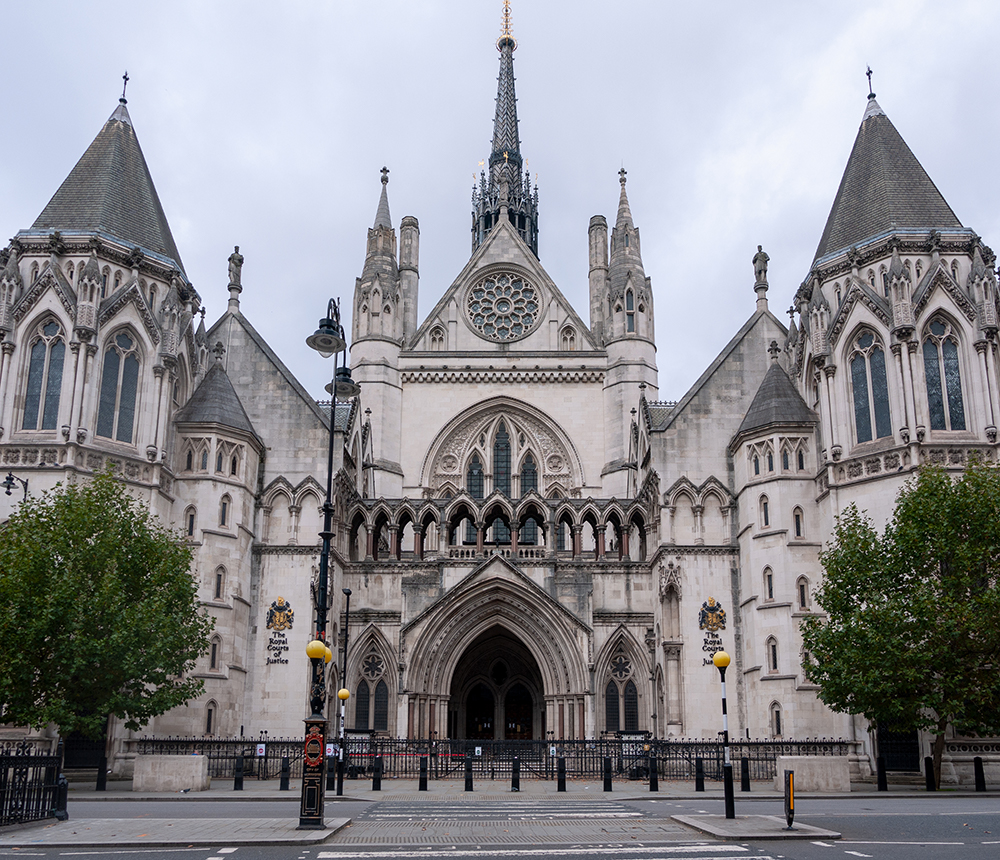English High Court: Journalist Carole Cadwalladr wins TED talk libel case against Brexiteer Arron Banks

A journalist who was sued by pro-Brexit businessman Arron Banks for libel in relation to a TED talk video and a tweet has won in the High Court of Justice (Queen’s Bench Division).

About this case:
- Citation:[2022] EWHC 1417 (QB)
- Judgment:
- Court:English High Court
The court found that although the statements in the video were defamatory, there was a legitimate public interest defence behind their publication.
Background
The judgment came from a libel claim brought by Arron Banks against Carole Cadwalladr. The claim concerned a TED talk entitled “Facebook’s role in Brexit – and the threat to democracy” which Ms Cadwalladr gave in 2019.
Mr Banks is “an important public figure in the political domain” and was a leading donor and campaigner for Brexit. He was co-founder of Leave.EU and contributed in the region of £8 to £9 million to pro-Leave campaigns.
Ms Cadwalladr is a freelance journalist and writer who has written predominantly for The Observer and The Guardian newspapers over the past 16 years. She was awarded the Orwell Prize for Political Journalism in June 2018 and shortlisted for the Pulitzer Prize for National Reporting in 2019.
The words in dispute here were spoken by Ms Cadwalladr in the TED talk: “And I am not even going to get into the lies that Arron Banks has told about his covert relationship with the Russian government.”
A recording of the TED talk was published on the TED.com website shortly after it was given. Ms Cadwalladr also tweeted about the event. In the tweet, Ms Cadwalladr provided a hyperlink to the TED talk and wrote: “Oh Arron. This is too tragic. Nigel Farage’s secret funder Arron Banks has sent me a pre-action letter this morning: he’s suing me over this TED talk. If you haven’t watched it please do. I say he lied about his contact with the Russian govt. Because he did.”
The essential issue in the trial was whether the statements had caused or were likely to cause serious harm to Mr Banks’ reputation, within the meaning of s.1 of the Defamation Act 2013. If so, it was open to Ms Cadwalladr to argue a public interest defence.
Issues for determination
The court had to determine whether the publication of the TED Talk and/or the tweet caused and/or was likely to cause serious harm to Mr Banks’ reputation. In Ms Cadwalladr’s defence, the court considered whether she believed publishing the statement was in the public interest.
If so, the court also had to consider if this was a reasonable belief held by Ms Cadwalladr, and if anything happened since the original publication affected this reasonable belief.
Mr Banks’ case noted the gravity of the imputation and the scale of publication. He claimed the statements imputed “very serious dishonesty” and a relationship with Russia, “a foreign power that is adverse to the United Kingdom”.
Evidence was also relied on to prove that the video had been viewed 1,015,640 times, and was available in 27 languages. Meanwhile, the tweet had appeared before Ms Cadwalladr’s 311,000 followers, had been re-tweeted 8,915 times and liked 20,261 times.
In response, it was argued that these allegations were at the lower end of the scale for libel. It was an allegation of misconduct by a high-profile political figure, not an allegation about a criminal offence, or about Mr Banks’ personal or private life.
Mr Banks claimed that he had been shunned as a result. This had occurred with members from his son’s school, and a drink had been thrown at him in public. He also alleged that it affected his business relations.
However, it was noted that no witness evidence was provided to support his claims. Further, the majority of viewers were followers of Ms Cadwalladr’s, and therefore Mr Banks had no reputation in their minds.
It was also argued that Mr Banks had no general reputation. A quote from an Interim Report on “Disinformation and ‘fake news’” published by the House of Commons’ Digital, Culture, Media and Sport Committee in 2019 stated: “Arron Banks and Andy Wigmore have misled the Committee on the number of meetings that took place with the Russian Embassy”.
Significant change in circumstances
Mr Banks argued that the defence that the statements had a legitimate interest, due to him being a public figure, fell away after a significant change was brought about by an investigation by the National Crime Agency (NCA).
The NCA investigated whether Mr Banks’ receipt of a loan from an off-shore company, to fund the Brexit campaign, was permissible. They determined that he was legally entitled to take such a loan.
Thereafter, a joint statement was made between the NCA and the Electoral Commission on 29 April 2020. The two organisations charged with assessing any legal breaches in the electoral campaign funding accepted that there was no evidence of an offence.
Once this joint statement was made, in the court’s view, it was “no longer reasonable to believe that it was in the public interest to assert that there were grounds to investigate whether the source of Mr Banks’s donations was foreign funding, accepted in breach of the law”.
Conclusion
The court found that Mr Banks proved that the publication of the TED talk caused and/or was likely to cause serious harm to his reputation. It was defamatory of Mr Banks.
Meanwhile, Ms Cadwalladr succeeded in establishing a public interest defence in respect of the TED talk from its original date of publication, 15 April 2019, until 29 April 2020.
However, after this date, there was a significant change of circumstances, and Ms Cadwalladr failed to establish the public interest defence in respect of continuing publication of the TED talk from that date.
However, Mr Banks also failed to establish that the serious harm condition was met in respect of publication of the TED talk from 29 April 2020.
The publication of the tweet was not found to be defamatory. Accordingly, the claim was dismissed, and no order as to damages was made.
SLAPP allegations
The judge also made reference to the claim made by Ms Cadwalladr that these libel proceedings were merely a disguised SLAPP (strategic lawsuit against public participation). Here, it was alleged that the suit was designed to silence and intimidate her.
The court was wary to accept the idea that Banks was “hounding her”. Rather, the court determined that, although Mr Banks’ claim ultimately failed, his attempt to seek vindication through the proceedings was “legitimate”.
In the court’s view, the circumstances of this case highlighted that Ms Cadwalladr had no defence of truth, and her defence of public interest succeeded only in part. In such circumstances, it was “neither fair nor apt to describe this as a SLAPP suit”.








